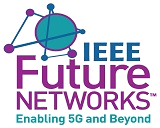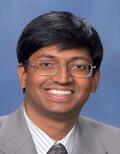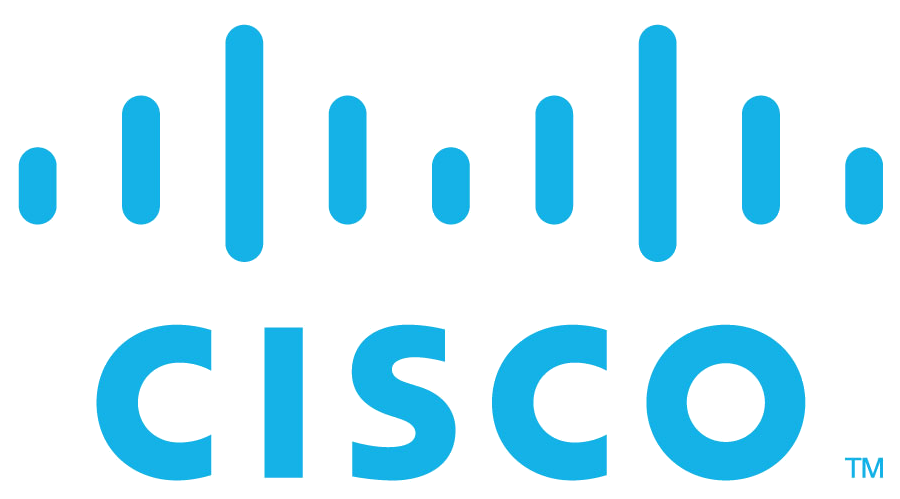Workshop on Machine Intelligence in Networked Data and Systems (MINDS)
Workshop Date: 5th January 2021
As connectivity and storage are getting cheaper, we are seeing more opportunities for Networking Data and Systems. The adaptation of machine learning, artificial intelligence, and data analytics techniques in these networked systems is set to transform and disrupt many areas of business and everyday human life. MINDS (Machine Intelligence in Networked Data and Systems) aims to bring together researchers and practitioners to understand and explain this inter-working.
MINDS welcomes original research submissions that define challenges, report experiences, or discuss progress toward design and solutions that integrate machine learning, artificial intelligence, data analytics, deep learning, mobile systems, and networked systems in various application areas. These application areas include healthcare, environment, retail, transportation, life sciences, e-commerce, cloud services, etc. Contributions describing techniques applied to real-world problems and interdisciplinary research involving novel networking architectures, system designs, IoT systems, big data systems that use techniques from machine learning, artificial intelligence, deep learning, and data analytics as the core component are especially encouraged.
The topics of interest include but are not limited to:
Applications
- Design and implementation of intelligent systems for applications such as home automation, self-driving vehicles, driver assistance systems, supply chain, and logistics
- Cloud based machine and deep learning applications in retail and e-commerce
- Machine learning systems for healthcare, weather modelling, life sciences, and environment monitoring
- Intelligent networked systems for city-scale transportation and logistics
Internet of Things (IoT)
- Machine learning driven systems using mobile phones, embedded devices, and sensor networks
- Applications of machine learning in IoT, IIoT, manufacturing, and supply chain optimisation
- Experiences in managing wearable devices, smart-home systems and mobile sensor networks
Networking
- Root cause analysis and failure prediction using system and network logs
- Applications of machine/deep/reinforcement learning in satellite networks, cellular networks and WiFi networks
- Machine learning driven algorithms and tools for network anomaly detection and network security
- Machine learning and data mining of large-scale network measurements
- Stream-based machine learning for networked data
- Machine learning driven algorithms for network scheduling and control
- Challenges and solutions in IoT data and stream processing at the edge and in the cloud
- High dimensional big data (images, videos) analysis using machine/deep learning
Social Media Networks
- Machine learning driven analysis of text, image, and video data on social media
- Security, privacy, trust analysis, health analytics in social media and digital networks
- Information diffusion, fake news detection, and knowledge transfer in social media and digital networks
- Anomaly and outlier detection in social networks
- Computational models and agent-based simulations of social networks
Submission Guidelines
- MINDS invites submission of original work not previously published, or under review at another conference or journal.
- Submissions (including title, author list, abstract, all figures, tables, and references) must be no greater than 5 pages in length.
- Reviews will be single-blind: authors name and affiliation should be included in the submission.
- Submissions must follow the formatting guidelines as given on IEEE Website; and those that do not meet the size and formatting requirements will not be reviewed.
- All papers must be in Adobe Portable Document Format (PDF) and submitted through the MINDS Workshop submission site on EDAS.
- All workshop papers will appear in conference proceedings and submitted to IEEE Xplore as well as other Abstracting and Indexing (A&I) databases.
Papers can be submitted through EDAS : Click Here
Important Deadlines
| Paper Submission | |
| Notification of Acceptance | |
| Camera-ready Submission |
Keynote Speakers
Harshad Khadilkar
TCS Research, IndiaVisit Homepage
There exists a stark dichotomy between real-world networked control systems and their academic counterparts, in terms of the capability and reliability. While research in this area is highly advanced, not many of the ideas from adaptation, learning, or game theory get implemented in actual practice. One possible explanation for this lack of impact is the perceived trustworthiness of "black-box" data-driven methods by the industry. In this talk, Harshad will talk about real-world case studies that have tried to bridge this gap, by simplifying the algorithmic aspects while retaining as much of the benefit as possible. The goal is to convince practitioners of the reliability of such methods, paving the way for greater benefits with deeper algorithms.
Harshad Khadilkar is a scientist with the research division of Tata consultancy services, where he leads the Planning and Control team in Mumbai. He is also a visiting associate professor with the aerospace engineering department at IIT Bombay. He holds a bachelors degree from the same department, in addition to masters and PhD degrees from the Massachusetts Institute of Technology. His research interests are in control and reinforcement learning algorithms for networked systems.
Srinivas Shakkottai
Texas A&M, USAVisit Homepage
Mean Field Games (MFG) are those in which each agent assumes that the states of all others are drawn in an i.i.d. manner from a common belief distribution, and optimizes accordingly. The equilibrium concept here is a Mean Field Equilibrium (MFE), and algorithms for learning MFE in dynamic MFGs are unknown in general due to the non-stationary evolution of the belief distribution. Our focus is on an important subclass that possesses a monotonicity property called Strategic Complementarities (MFG-SC). We introduce a natural refinement to the equilibrium concept that we call Trembling-Hand-Perfect MFE (T-MFE), which allows agents to employ a measure of randomization while accounting for the impact of such randomization on their payoffs. We propose a simple algorithm for computing T-MFE under a known model. We introduce both a model-free and a model based approach to learning T-MFE under unknown transition probabilities, using the trembling-hand idea of enabling exploration. We analyze the sample complexity of both algorithms. We also develop a scheme on concurrently sampling the system with a large number of agents that negates the need for a simulator, even though the model is non-stationary. Finally, we empirically evaluate the performance of the proposed algorithms via examples motivated by real-world applications. This is joint work with Kiyeob Lee, Desik Rengarajan, and Dileep Kalathil.
Prof. Srinivas Shakkottai received a PhD in 2007 in Electrical and Computer Engineering from the University of Illinois at Urbana- Champaign. He was a postdoctoral scholar in Management Science and Engineering at Stanford University in 2007. He joined Texas A&M University in 2008, where he is currently a professor of Computer Engineering at the Dept. of Electrical and Computer Engineering. His research interests include caching and content distribution, wireless networks, learning and game theory, as well as network data analytics.
Srinivas is the recipient of the Defense Threat Reduction Agency Young Investigator Award (2009) and the NSF Career Award (2012), as well as research awards from Cisco (2008) and Google (2010). He also received an Outstanding Professor Award (2013), the Select Young Faculty Fellowship (2014), and the Engineering Genesis Award (2019) at Texas A&M University.
Invited Speakers
Ketan Rajawat
IIT Kanpur, IndiaVisit Homepage
We consider the decentralized convex optimization problem, where multiple agents must cooperatively minimize a cumulative objective function, with each local function expressible as an empirical average of data-dependent losses. State-of-the-art approaches for decentralized optimization rely on gradient tracking, where consensus is enforced via a doubly stochastic mixing matrix. Construction of such mixing matrices is not straightforward and requires coordination even prior to the start of the optimization algorithm. This paper puts forth a primal-dual framework for decentralized stochastic optimization that obviates the need for such doubly stochastic matrices. Instead, dual variables are maintained to track the disagreement between neighbors. The proposed framework is flexible and is used to develop decentralized variants of SAGA, L-SVRG, SVRG++, and SEGA algorithms. Using a unified proof, we establish that the oracle complexity of these decentralized variants is $O(1/\epsilon)$, matching the complexity bounds obtained for the centralized variants. Additionally, we also present a decentralized primal-dual accelerated SVRG algorithm achieving $O(1/\sqrt{\epsilon})$ oracle complexity, again matching the bound for the centralized accelerated SVRG. Numerical tests on the algorithms establish their superior performance as compared to the variance-reduced gradient tracking algorithms.
Ketan Rajawat (S’06–M’12) received his B.Tech and M.Tech degrees in Electrical Engineering from the Indian Institute of Technology (IIT) Kanpur, India, in 2007, and his Ph.D. degree in Electrical and Computer Engineering from the University of Minnesota, Minneapolis, MN, USA, in 2012. He is currently an Associate Professor in the Department of Electrical Engineering, IIT Kanpur. His research interests are in the broad areas of signal processing, robotics, and communications networks, with particular emphasis on distributed optimization and online learning. His current research focuses on the development and analysis of distributed and asynchronous optimization algorithms, online convex optimization algorithms, stochastic optimization algorithms, and the application of these algorithms to problems in machine learning, communications, and smart grid systems. He is currently serving as an Associate Editor with the IEEE Communications Letters and IEEE Transactions on Signal Processing. He is also the recipient of the 2018 INSA Medal for Young Scientists and the 2019 INAE Young Engineer Award.
Arun Rajkumar
IIT Madras, IndiaVisit Homepage
Ranking from pairwise comparisons is a problem of interest in several communities including machine learning, operations research, social choice theory, theoretical computer science, etc. The problem is modelled naturally using an underlying ground truth Tournament network where the nodes represent items to be ranked and directed edge weights represent preference strengths. Recent work has focussed on developing algorithms for ranking optimally on certain parametric cycle free Tournaments by observing only O(nlog(n)^2) comparisons (where n is the number of nodes). However, being cycle free is a modelling constraint that limits the application of these algorithms to wider use-cases. In this talk, we will describe our current work on modelling cycle free tournaments by introducing a novel parametric tournament which can incorporate cycles. We will exhibit algorithms for solving the feedback arc set problem on such tournaments in polynomial time and provide sample complexity bounds for learning in such networks.
Arun Rajkumar is an assistant professor at the Computer Science and Engineering department of Indian Institute of Technology, Madras. He earned his PhD from the Indian Institute of Science in 2017 and was a research scientist at Xerox research prior to joining IITM. His research interests are broadly in the areas of statistical learning theory, machine learning with a specific focus on ranking algorithms and online learning.
Workshop Schedule
| Session | Time |
|---|---|
| Opening | 9.20am-9.30am |
| Keynote talk 1: Speaker: Prof. Srinivas Shakkottai, ECE, Texas A&M, USA Title: Reinforcement Learning for Mean Field Games with Strategic Complementarities |
9.30am-10.15am |
| Title: A Non-intrusive Failure Prediction Mechanism for Deployed Optical Networks Authors: Dibakar Das (IIITB, India); Mohammad Fahad Imteyaz (Tejas Networks, India); Jyotsna Bapat (International Institute of Information Technology, India); Debabrata Das (International Institute of Information Technology - Bangalore, India) |
10.15am-10.40am |
| Title: A novel deep neural design and efficient Pipeline architecture for Person Re- Identification in high resolution Video Authors: Govardhan Mattela (Indian Institute of Technology, Hyderabad, India); Manmohan Tripathi (Ceremorphic India Pvt Ltd, India); Chandrajit Pal (Ceremorphic India Pvt Ltd) |
10.40am-11.05am |
| Break | 11.05am-11.30am |
| Invited talk 1: Speaker: Prof. Ketan Rajawat, ECE, IIT Kanpur Title: A Primal-Dual Framework for Decentralized Stochastic Optimization |
11.30am-12.10pm |
| Title: Disease Assessment in Rice with Pervasive Stationary and Mobile Sensing - Learnings from Rabi 2019-20 Authors: Mariappan Sakkan and Sanat Sarangi (Tata Consultancy Services, India); Swagatam Bose Choudhury (Tata Consultancy Services Limited, India); Prachin Jain, Hemavathy B., Rajesh Urkude and Srinivasu Pappula (Tata Consultancy Services, India) |
12.10am-12.35pm |
| Title: IoTPerimeter: A Passive Fingerprinting of Smart Environment using Graph-based Features Authors: Priyanka R Chaudhary (BITS PILANI, India); Rajib Ranjan Maiti (BITS-Pilani, India) |
12.35pm-1pm |
| Lunch Break | 1pm-3pm |
| Invited talk 2: Speaker: Prof. Arun Rajkumar, CSE, IIT Madras Title: Ranking in parametric intransitive tournaments from pairwise comparisons. |
3am-3.40pm |
| Title: Mobile App Controlled Modular Combat Robot for STEM Education AUthors: Connie Man-Ching Yuen (Hong Kong Shue Yan University, Hong Kong); Ka Kei Chan (The Hong Kong Polytechnic University, Hong Kong); Kwok Shing Li (City University of Hong Kong, Hong Kong) |
3.40pm-4.05pm |
| Break | 4.05pm-4.30pm |
| Title: User Profiling Using Smartphone Network Traffic Analysis Authors: Ayush Bahuguna and Ankit Agrawal (BITS Pilani, India); Ashutosh Bhatia (Birla Institute of Technology and Science, Pilani, India); Kamlesh Tiwari (BITS Pilani, India); Deepak Kumar Vishwakarma (IISc, India) |
4.30pm-4.55pm |
| Keynote talk 2: Speaker: Dr. Harshad Khadilkar, TCS Research, India Title:Thinking networks: Simple, explainable methods to introduce learning-based adaptation in networked systems |
5pm-5.45pm |
| Best paper award and conclusion | 5.45pm-6:00pm |
Program Committee:
Palaniappan Balamurugan, IIT Bombay, India
Tejas Bodas, IIT Dharwad, India
Sumit Darak, IIIT Delhi, India
Yezekael Hayel, University of Avignon, France
Dheryta Jaisinghani, University of Northern Iowa, USA
Salil Kanhere, UNSW Sydney, Australia
Nikhil Karamchandani, IIT Bombay, India
Bharath Bettagere Nagaraja, IIT Dharwad, India
Jayakrishnan Nair, IIT Bombay, India
Jaya Sreevalsan-Nair, IIIT Bangalore, India
Ranjitha Prasad, IIIT Delhi, India
Alok Ranjan, Virginia Commonwealth University, USA
Bharadwaj Satchidanandan, MIT, USA
Mithileysh Sathiyanarayanan, MIT Square, USA
Rahul Singh, IISc Bangalore, India
Naveen Kumar Thokala, TCS Research and Innovation Lab, India
Workshop Co-Chairs

Manjesh Hanawal
IIT Bombay, India

Dileep Kalathil
Texas A&M University, USA












































